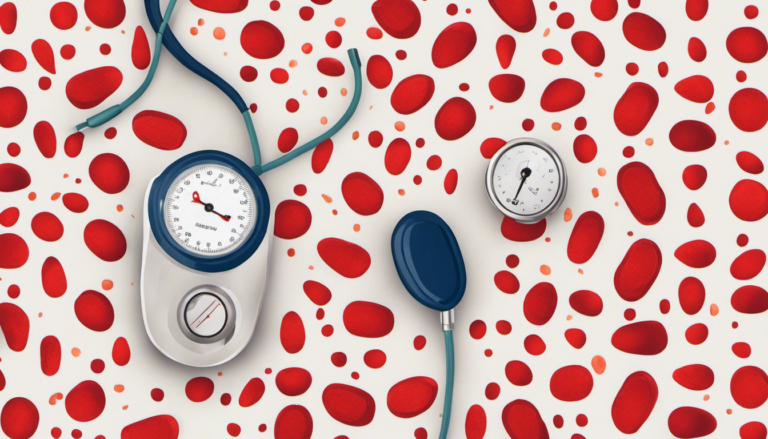What to Eat Before & After a Workout
I. Introduction
Nutrition plays a pivotal role in our daily lives, but its importance is magnified when it comes to workouts. The food we consume is not just about satisfying our taste buds, but it’s about fueling our bodies for physical activity. The right nutrition can enhance performance, promote muscle recovery, and prevent fatigue. Understanding the role of nutrition in relation to workouts is key to achieving fitness goals.
Food is the body’s primary source of energy. It provides the fuel needed for every physical activity, from simple daily tasks to intense workouts. The nutrients derived from food are essential for energy production and muscle recovery. Without proper nutrition, the body would lack the energy required for workouts and the ability to recover and grow stronger post-workout.
Whether you’re a professional athlete or a fitness enthusiast, understanding the role of nutrition in workouts can help you optimize your performance and results. This article will delve into the importance of pre- and post-workout nutrition, the body’s energy needs, and debunk some common myths and misconceptions about workout nutrition.
II. Understanding the Body’s Energy Needs
The human body is a complex machine that requires fuel to function. This fuel comes from the food we eat. Our bodies break down the nutrients in food—carbohydrates, proteins, and fats—into smaller molecules that can be used to produce energy. This energy is then used to power every movement, from lifting weights to running a marathon.
Carbohydrates, proteins, and fats each play a unique role in energy production. Carbohydrates are the body’s preferred source of energy, as they can be quickly broken down into glucose. Proteins, on the other hand, are primarily used for muscle repair and growth but can also be used as an energy source when carbohydrate stores are low. Fats are a concentrated source of energy, providing more than twice the amount of energy per gram compared to carbohydrates and proteins. Understanding the role of these macronutrients in energy production can help you fuel your body effectively for workouts.
However, it’s not just about consuming these macronutrients, but also about when and how much to consume. The timing and quantity of nutrient intake can significantly impact energy levels during a workout and recovery post-workout. This is where pre- and post-workout nutrition comes into play.
III. The Importance of Pre-Workout Nutrition
Eating before a workout is like fueling up a car before a long drive. It provides the body with the necessary energy to perform at its best. Without adequate pre-workout nutrition, the body may resort to breaking down muscle tissue for energy, a process known as muscle catabolism. This can lead to decreased performance and hinder muscle growth and recovery.
Pre-workout meals play a crucial role in preventing muscle catabolism. They provide the body with a steady supply of energy, allowing it to preserve muscle tissue. Additionally, pre-workout nutrition can enhance performance by increasing energy levels, improving endurance, and reducing muscle fatigue. Planning your pre-workout meals can help you maximize these benefits.
However, it’s not just about eating any food before a workout. The composition of the pre-workout meal is key. It should be rich in carbohydrates to fuel your workout, contain moderate protein to prevent muscle catabolism, and be low in fat and fiber to prevent digestive discomfort during exercise.
IV. What to Eat Before a Workout
The ideal pre-workout meal should be a balanced combination of carbohydrates and protein. Carbohydrates provide the energy needed for the workout, while protein helps prevent muscle breakdown. Some examples of good pre-workout foods include bananas, oats, Greek yogurt, and lean chicken or turkey.
These foods are beneficial because they provide a steady release of energy, preventing energy crashes during the workout. For instance, bananas are a great source of natural sugars and simple carbohydrates, which provide quick energy. Oats, on the other hand, are rich in complex carbohydrates, which provide sustained energy. Greek yogurt and lean meats provide high-quality protein, which helps protect muscle tissue. Here are some healthy meal ideas that can be incorporated into your pre-workout nutrition plan.
The timing of the pre-workout meal is also important. It’s recommended to eat a full meal 2-3 hours before the workout or a smaller snack 30-60 minutes before. This allows enough time for digestion and absorption of nutrients, ensuring that the body has ample energy for the workout.
V. The Importance of Post-Workout Nutrition
Just as it’s important to fuel up before a workout, it’s equally important to refuel after. Post-workout nutrition is crucial for muscle recovery and growth. During a workout, muscles are broken down and glycogen stores are depleted. Consuming the right nutrients after a workout helps replenish these glycogen stores and repair muscle tissue, promoting faster recovery and growth.
Post-workout meals play a key role in this recovery process. They provide the body with the necessary nutrients to repair, rebuild, and grow stronger. Additionally, post-workout nutrition can enhance future performance by replenishing energy stores and reducing muscle soreness. Choosing the right sources of protein can help maximize these benefits.
However, just like pre-workout nutrition, the composition and timing of the post-workout meal are crucial. It should be rich in protein to support muscle recovery and contain carbohydrates to replenish energy stores.
VI. What to Eat After a Workout
The ideal post-workout meal should contain high-quality protein to support muscle recovery and carbohydrates to replenish glycogen stores. Some examples of good post-workout foods include eggs, quinoa, sweet potatoes, and chocolate milk.
These foods are beneficial because they provide the necessary nutrients for recovery. For instance, eggs are a great source of protein and essential amino acids, which are crucial for muscle repair. Quinoa and sweet potatoes are rich in complex carbohydrates, which help replenish glycogen stores. Chocolate milk provides a good balance of protein and carbohydrates and is also hydrating. Here are some recipe ideas that can be incorporated into your post-workout nutrition plan.
The timing of the post-workout meal is also important. It’s recommended to eat within 45 minutes to an hour after a workout, as this is when muscles are most receptive to nutrients and when glycogen synthesis is at its peak.
VII. Hydration and Exercise
Hydration is often overlooked but is just as important as nutrition when it comes to workouts. Staying hydrated before, during, and after a workout is crucial for performance and recovery. Water helps regulate body temperature, lubricate joints, transport nutrients, and flush out toxins. Dehydration can lead to fatigue, decreased performance, and even serious health issues.
It’s recommended to drink water throughout the day and not just during workouts. The amount needed can vary depending on factors like age, sex, weight, and activity level, but a general guideline is to drink at least 8 glasses of water a day. During workouts, it’s recommended to drink about 1-2 cups of water for every 15-20 minutes of exercise. Learn more about the benefits of hydration and how to stay properly hydrated.
While water is usually sufficient for hydration, sports drinks can be beneficial for longer or more intense workouts. These drinks contain electrolytes, which help maintain fluid balance, and carbohydrates, which provide energy.
VIII. Special Considerations
While the general principles of workout nutrition apply to most people, there are special considerations for those with dietary restrictions or allergies. For instance, those following a vegan or vegetarian diet need to ensure they’re getting enough protein and certain nutrients like vitamin B12 and iron, which are predominantly found in animal products. Similarly, those with food allergies or intolerances need to find safe and suitable alternatives to common workout foods.
The type of workout also affects nutritional needs. For instance, strength training workouts require more protein for muscle repair and growth, while endurance workouts like running or cycling require more carbohydrates for energy. Understanding the nutritional demands of different types of workouts can help you tailor your nutrition plan accordingly.
It’s also important to note that everyone’s body is different. What works for one person may not work for another. It’s recommended to experiment with different foods, timings, and quantities to find what works best for you.
IX. Common Myths and Misconceptions
There are many myths and misconceptions about workout nutrition that can lead to confusion and suboptimal results. One common myth is that fasting workouts lead to greater fat loss. While it’s true that the body uses more fat for energy when glycogen stores are low, this doesn’t necessarily translate to greater fat loss. Overall calorie intake and expenditure are more important factors for fat loss.
Another common misconception is that protein should be consumed immediately after a workout. While it’s important to consume protein post-workout to support muscle recovery, the anabolic window (the period of time after a workout when protein synthesis is elevated) is much longer than previously thought. Learn more about protein timing and how to optimize your protein intake for workouts.
It’s important to base your workout nutrition plan on sound science and not fall for these myths and misconceptions. Consulting with a registered dietitian or a certified sports nutritionist can be helpful in creating a personalized and effective workout nutrition plan.
X. Conclusion
Proper nutrition is a key component of any workout routine. It provides the energy needed for the workout and the nutrients needed for recovery and growth. Pre- and post-workout nutrition, in particular, can significantly impact performance and results.
While the principles of workout nutrition are generally the same for everyone, it’s important to tailor your nutrition plan to your individual needs, goals, and preferences. This may involve experimenting with different foods, timings, and quantities, and adjusting based on how your body responds.
Remember, there’s no one-size-fits-all approach to workout nutrition. What works best for you may not work best for someone else. The key is to listen to your body and fuel it with the right nutrients at the right times. Learn more about workout nutrition and how to optimize it for your workouts.







